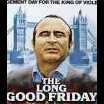-
Welcome to DOSBODS
DOSBODS is free of any advertising.
Ads are annoying, and - increasingly - advertising companies limit free speech online. DOSBODS Forums are completely free to use. Please create a free account to be able to access all the features of the DOSBODS community. It only takes 20 seconds!
IGNORED
Property crash, just maybe it really is different this time
-
Recently Browsing 0 members
- No registered users viewing this page.



Recommended Posts